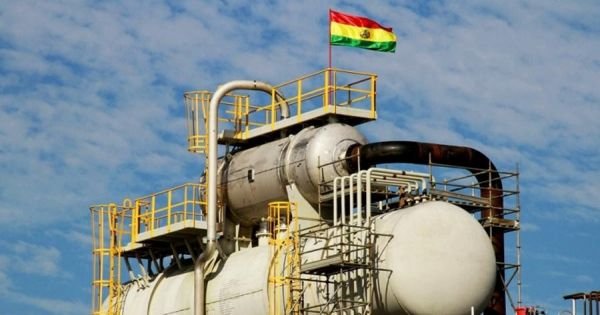[ad_1]
Bolivian gas production and exports forecasted to drop dramatically by 2030
According to Wood Mackenzie, Bolivia’s natural gas production is expected to fall from 39 million cubic meters per day in 2022 to 11 million cubic meters/day in 2030.
Bolivia may shift from being an exporter of natural gas to Brazil and Argentina to becoming an importer by 2030. A report by British energy consultancy Wood Mackenzie indicates that Bolivia’s natural gas production will decline faster than expected. The reason is the aging of the country’s production fields and the absence of new discoveries.
According to the study, Bolivia’s natural gas production is expected to fall from 39 million cubic meters per day in 2022 to 11 million m³/day in 2030.
Last year, Bolivian state-owned company YPFB reduced natural gas exports to Brazil by about 30% to adjust supply to production. “Production in Bolivia has been in a steady decline since 2015, with a slight increase in 2021,” said Amanda Bandeira, upstream analyst for Latin America at Wood Mackenzie.
“With few discoveries and little supply in developed fields, production will start to decline much faster. Currently, domestic demand consumes about 30% of total supply. By 2030, domestic demand will likely exceed supply, and we could see Bolivia become an importer,” the analyst said.
According to the report, an increase in exploration, with new significant discoveries in Bolivia, will be necessary to reverse the trend of a sharp decline in production. However, efforts so far have not been successful.
The projected decline will have a dramatic effect on the export market. Natural gas is a crucial sector for the Bolivian economy, with exports to Brazil and Argentina playing a pivotal role. Exports to the two countries represent more than 70% of total gas sales and 20% of total exports.
Henrique Anjos, gas and energy analyst for Latin America at Wood Mackenzie, also said that the interruption of exports is likely to affect Brazil more. “Argentina has expanded its production, reducing the importance of Bolivian gas, but Brazil still requires a lot of imports,” he said.
Despite Brazil being a major natural gas producer due to the pre-salt, half of the production is returned to the wells by Petrobras. Reinjection is done, in most cases, to increase oil extraction, which is more commercially valuable. The Brazilian state-owned company also argues that point-specific limitations and lack of market justify the reinjection rate.
[ad_2]
Source link




